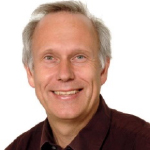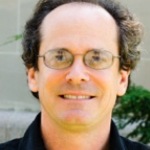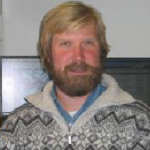

instituto de biologia molecular e celular | institute for molecular and cell biology
17 November 2016 | i3S, Auditorium Corino de Andrade
As if it was a harmonious play of fine-tuned strings molecular biosystems communicate through intracellular responses and trades with the outer environment. An inception of molecular networks orchestrates the functional melody that shapes life.
With an ensemble of diverse backgrounds the students of the MCBiology PhD program invite you to participate in the 2nd Annual MCBiology Symposium ‘Orchestrating life, from molecules to cells’. This one-day symposium at the Institute for Innovation and Health Research (i3S) I3S in Porto, Portugal, will cover developments in microbiology, biotechnology and cell and tissue organization.
Talks by leading experts and by the PhD students themselves, panel discussions and informal whiteboard sessions we ambition to create the proper environment that stimulates networking among early-career scientists and high-profile experts.
Register and join us on November 17th at the i3S for the 2nd Annual MCBiology Symposium ‘Orchestrating life, from molecules to cells’.
Registration is free but mandatory. Please fill the registration form >>
The 2nd Annual Symposium will bring to i3S Professors Peter Lindblad, John Helmann and Richard Engh to share their work and experience in three distinct areas of expertise.
 |
Peter Lindblad is Professor of Microbial Chemistry at the Department of Chemistry of the Uppsala University, Sweden. He is a leading expert in developing molecular tools for synthetic biology focusing on the conversion of solar energy into biofuels using cyanobacteria. |
 |
John Helmann is Professor of Bacterial Genetics at the Cornell University, USA. He is responsible for foresmost breakthroughs in the study of transcriptional control of stress responses particularly those triggered by RNA polymerase sigma subunits. Helmann’s lab uses Bacillus subtilis as a genetic model system to study cell envelope stress, resistance to oxidative and nitrosative stress, and metal ion homeostasis. |
 |
Richard Engh, Professor of Structural Chemistry at the University of Tromsø - Norway, focuses his research on structural studies of signaling molecules. Engh’s lab develops structure-based optimization of enzyme-ligand binding properties to design new protein inhibitors, with a number of diverse pharmacological applications. |
| 8h45-9h05 | Registration | |
| 9h15 | Symposium Opening & Welcome | |
|
Claudio Sunkel, Cell Division & Genomic Stability, IBMC- i3S, PT |
||
Developments in microbiology and biotechnology |
||
| 9h30 | KEYNOTE LECTURE | |
| Peter Lindblad, Uppsala University, Sweden | ||
|
Advanced gene technology and synthetic biology to custom design photosynthetic microorganisms (cyanobacteria) for biotechnological applications |
||
| 10h30 | SHORT COMMUNICATIONS | |
| Tatiana Cereija, Biomolecular Structure & Function, IBMC- i3S, PT | ||
|
Biochemical and structural characterization of a mycobacterial glucosylglycerate hydrolase, a key enzyme in nitrogen starvation recovery |
||
|
Carlos Flores, Bioengineering and Synthetic Microbiology, IBMC- i3S, PT |
||
|
Cyanobacterial extracellular polymeric substances (EPS): production, regulation and biological activity |
||
| 11h00 | Coffee-break | |
| 11h30 | SHORT COMMUNICATIONS | |
| Cláudia Brito, Molecular Microbiology, IBMC- i3S, PT | ||
| Host cytoskeleton responses against bacterial pore-forming toxins | ||
| 11h45 | KEYNOTE LECTURE | |
| John Helmann, Cornell University, USA | ||
|
How Bacillus subtilis manages metals |
||
| 12h45 | Lunch Break | |
Intracellular organization and cell cycle |
||
| 14h15 | KEYNOTE LECTURE | |
| Richard Engh, Tromsø University, Norway | ||
|
Unpredicable protein kinase flexibility: curse or blessing for inhibitor discovery? |
||
| 15h15 | SHORT COMMUNICATIONS | |
| Margarida Gomes, Chromosome Instability & Dynamics, IBMC- i3S, PT | ||
|
Systematic dissection of human proteins involved in chromosome congression |
||
| Marta Oliveira, Gene Regulation, IBMC- i3S, PT | ||
|
Integrating RNA polymerase II transcription with alternative polyadenylation |
||
| Sofia Moreira, Cell Division & Genomic Stability, IBMC- i3S, PT | ||
| Phosphoregulation of Lgl couples mitotic exit with epithelial apico-basal polarity | ||
| 16h00 | Coffee-break and Poster session | |
Cell and tissue architecture |
||
| 17h30 | SHORT COMMUNICATIONS | |
| Ana Rita Malheiro, Nerve Regeneration, IBMC- i3S, PT | ||
|
The (ether) link between axons and their myelin sheath |
||
| Catarina Meireles, Thymus Development and Function, IBMC- i3S, PT | ||
|
Thymic epithelial progenitors settle within the postnatal cortex and their pool decreases with age in a thymocyte-dependent manner |
||
| Ana Rita Costa, Nerve Regeneration, IBMC- i3S, PT | ||
|
Profilin is a key regulator of actin and microtubule dynamics required for optimal axon growth and regeneration |
||
| 18h15 | Closing address | |
| Paula Tamagnini, Bioengineering and Synthetic Microbiology, IBMC- i3S, PT | ||
| 19h30 | Symposium dinner | |
| xxxxxxxxx |
The MCbiology PhD programme, jointly organized by the Institute of Biomedical Sciences Abel Salazar (ICBAS), Faculty of Sciences of the University of Porto (FCUP) and the Institute of Molecular and Cell Biology (IBMC), provides advanced training in Molecular and Cell Biology. This program is oriented to be the starting point for a career in academic or industrial research. Currently in its third edition, it focuses on the hallmarks of molecular and cellular biology to stimulate progress and innovation in life sciences.
Ana Rita Santos | Ana Rosa | Baltazar Cá | Celso Duarte | Cristina Teixeira | Jeremy Sousa | Kaori Fonseca | Marina Santos | Marina Silva | Marta Pinho | Rute Oliveira | Sara Vaz | Ana Margarida Gomes | Sofia Moreira | Ana Rita Costa
Home | Site Map | Contacts | Credits | Privacy & Cookies | WHISTLEBLOWER CHANNEL | Intranet | Social Networks |
